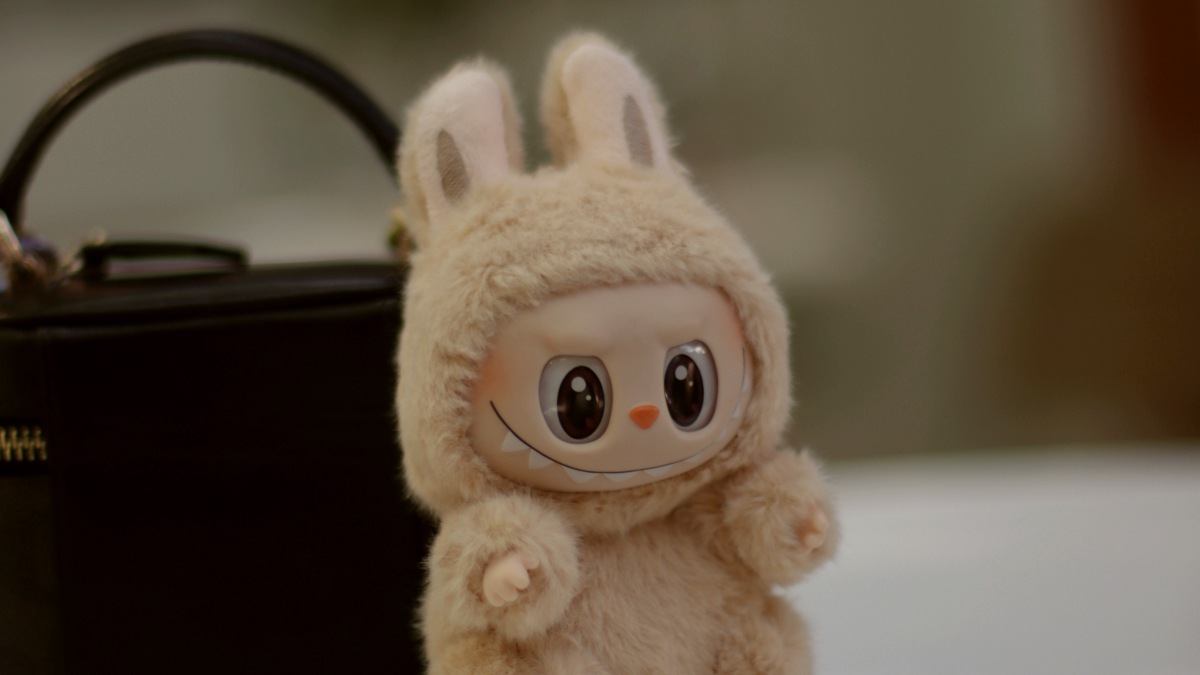
The Psychology Behind The Global 'Labubu' Craze
On the surface, it's just an ugly toy, but the Labubu fever follows a familiar psychological pattern that's innately human.

By Mark Travers, Ph.D. | August 01, 2025
If you've had to Google what a Labubu is in the past few weeks, don't worry: you're not out of touch. These wild-eyed, snaggle-toothed little creatures have taken the world by storm faster than any of us could've predicted.
Just a few months ago, Labubu was an obscure cartoon character, created by artist Kasing Lung. Then, once a toy-version was spotted on BLACKPINK's Lisa's backpack, everyone just had to have one.
Now, they're dangling from keychains, dominating collectible markets and cropping up in YouTube unboxing videos by the dozens.
There are now over 300 different Labubus, each with their own name, style and storyline. However, they're sold in blind boxes — meaning that when you buy one, you have no idea which Labubu you're getting. Some are considered ultra-rare and resell for hundreds, even thousands, of dollars. Others are less so.
To the uninitiated, the hype might seem dumbfounding. Why are so many people (including full-grown adults) losing their minds over these ugly-cute little monsters? But from a psychological standpoint, the Labubu craze is anything but surprising. Here are two reasons why.
1. 'Labubus' Are A Love Letter To The Weird Toys Of Our Youth
Before you judge today's Labubu-lovers too harshly, take a moment to think about your own childhood. Chances are, you too have likely had a deep emotional attachment to something that, in hindsight, was objectively weird-looking.
Maybe it was a wiry-haired Troll Doll. Or, maybe, it was a Furby with unpredictable eyes. Or, at the least, it might've been a Cabbage Patch Kid that looked more like a gremlin in a bonnet than a baby. Labubus are merely the latest branch on the tall family tree of "ugly-cute" obsessions.
In fact, this could be one of the many reasons that they're so popular today among adults: because they tap into that very same nostalgia.
For decades, nostalgia was viewed by psychologists as a form of cognitive decline: a psychological sickness that kept people stuck in the past. But, as 2013 research from Social and Personality Psychology Compass explains, this is no longer the case.
Today, nostalgia is widely accepted to be an invaluable psychological resource. It offers us comforts from bygone eras, while also serving as an effective mood booster. But, most of all, it contributes greatly to our sense of meaning and identity; these benefits become all the more salient in uncertain times, during which the simplicities of our youth seem so alluring yet so out of reach.
So, when someone buys a Labubu, they're likely not just chasing a collectible. If anything, it's more plausible to surmise that they're after a feeling. It could be a sense of familiarity, or maybe just some momentary child-like wonder. In either case, it takes us back to the days when life felt simpler and a bit more magical.
Sure, they can be pricey. But, for many, any price is small if it buys a ticket back to a time when joy came in the form of plastic toys and imaginary friends.
2. The High Of The 'Blind Box'
Of course, there's another layer to the Labubu phenomenon. However, it taps into something a little more primal: the thrill of the unknown.
Blind boxes, in many ways, operate similarly to slot machines. You spend money without knowing what you'll get, and the reward system is randomized. Will the Labubu you get be a common one you already have? Or a glittering, rare one worth flipping for hundreds?
That little hit of suspense in the moments just before the reveal is what makes them so addictive.
This isn't exactly a new trend, either. We've seen the exact same psychology play out in the world of online gaming, where "loot boxes" have become a mainstay.
Countless online games (like FIFA, Overwatch or Counter-Strike) persuade millions of gamers to spend real money on digital "packs," in the hopes of unboxing a superstar player or a rare skin.
In both the case of loot boxes and Labubus, buyers are being sold a thrill; for many, that feeling becomes hard to resist. And if you think this sounds a lot like actual gambling, you'd be correct.
As 2021 research from New Media & Society explains, there is a definitive link between loot box purchasing and gambling-related behaviors — particularly in younger audiences. It's precisely the same variable-ratio reward schedule that makes casinos so insidiously effective: the unpredictability of it keeps us coming back for more.
So, while most people can enjoy the occasional Labubu blind box opening without much issue, it's worth noting that the mechanism that underlies these transactions is specifically designed to hook buyers in.
Purchasing one or two for fun is one thing, but buying thirty in the hopes of pulling "that one ultra-rare" item will pull buyers into significantly riskier territories.
In other words, what looks like harmless fun could, in the wrong hands, serve as a pipeline into obsession. This risk is only amplified by social media hype and the supposed rarity of certain Labubus. In today's economy, that can spell trouble. Whether you buy one or not, the intention behind your decision carries the most weight.
Do you often fall prey to pricey fads? Take this science-backed test to find out if it's worth auditing your spending habits: Financial Management Behavior Scale
A similar version of this article can also be found on Forbes.com, here.
